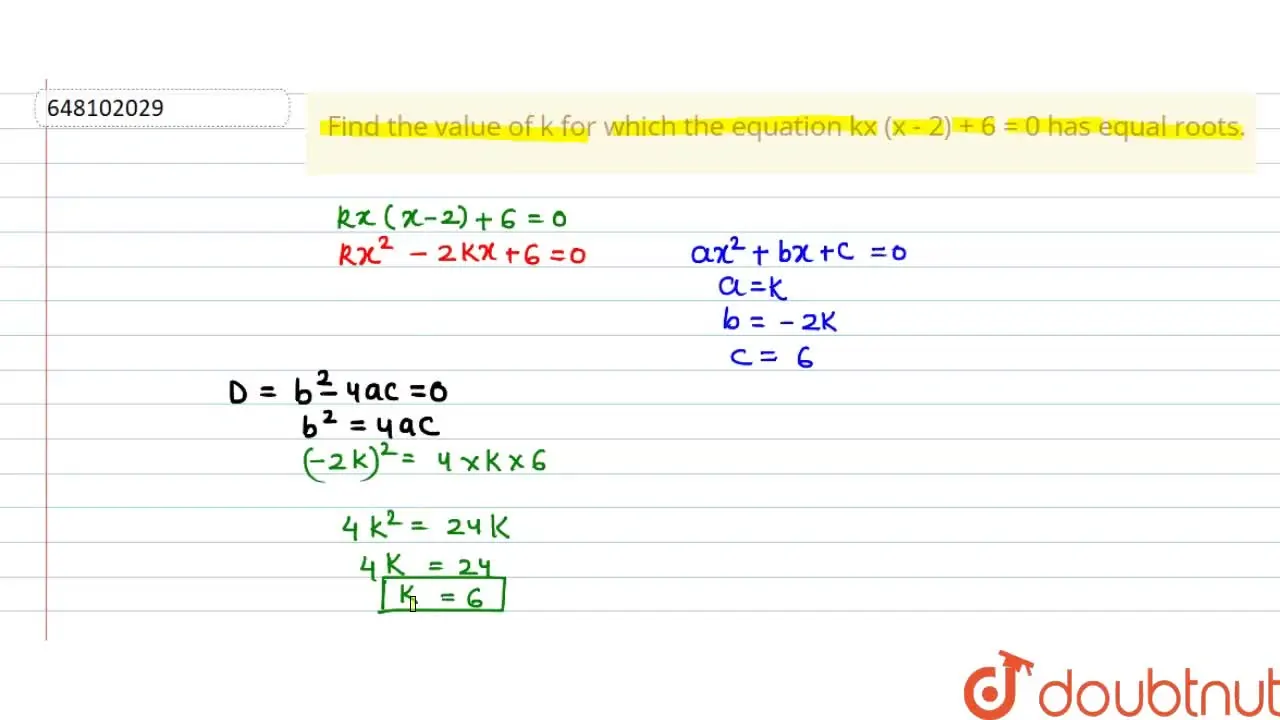Find the value of k for which the equation kx (x - 2) + 6 = 0 has equal roots.
Step by step video & image solution for Find the value of k for which the equation kx (x - 2) + 6 = 0 has equal roots. by Maths experts to help you in doubts & scoring excellent marks in Class 10 exams.
Related Playlists
- BOOK - EDUCART PUBLICATIONCHAPTER - SAMPLE PAPER 12 EXERCISE - PART - A (SECTION -II)14videos
SAMPLE PAPER 12
- BOOK - EDUCART PUBLICATIONCHAPTER - SAMPLE PAPER 12 EXERCISE - PART - B (SECTION -III)9videos
SAMPLE PAPER 12
- BOOK - EDUCART PUBLICATIONCHAPTER - SAMPLE PAPER - 6 EXERCISE - PART - B (SECTION - IV)13videos
SAMPLE PAPER - 6
- BOOK - EDUCART PUBLICATIONCHAPTER - SAMPLE PAPER 5 EXERCISE - Part B (Section - V)4videos
SAMPLE PAPER 5
Similar Questions
Find the value of k for which the equation 2kx2−40x+25=0 has equal roots. Also, find the roots.
View SolutionFind the value of k for which the equation 9x2−24x+k=0 has equal roots. Also, find the roots.
View SolutionFind the values of k for which the equation x2+5kx+16=0 has no real roots.
View SolutionWhat is the value (s) of k for which the equation kx2−kx+1=0 has equal roots?
View SolutionFind the value of k for the equation 2x2+kx+2=0, if it has equal roots.
View Solutionthe value(s) if k for which the equation 5kx2−8x+2=0 has real roots
View SolutionFind the value of k if the quadratic equation kx(x−2)+6=0 has two equal roots.
View SolutionWrite the value of k for which the quadratic equation x2−kx+4=0 has equal roots.
View SolutionFind the least positive value of k for which the equation x2+kx+4=0 has real roots.
View SolutionFind the value (p) of k for which the equation x2+5kx+16=0 has real and equal roots.
View Solution


